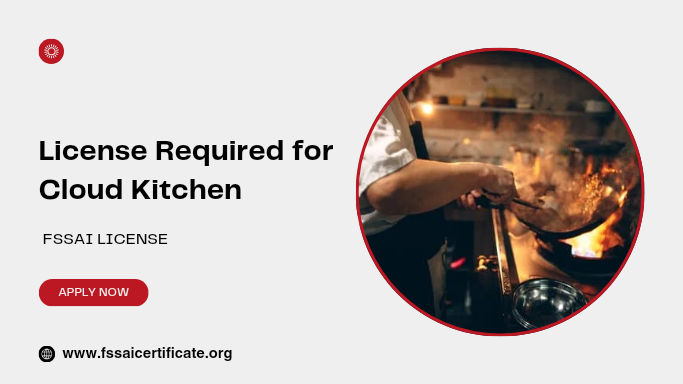License Requirements for Cloud Kitchen
Operating a Cloud Kitchen requires compliance with various licenses to ensure legal operation. Here’s a comprehensive guide on the licenses required for setting up and running a cloud kitchen.

Introduction to Cloud Kitchen Licensing
Cloud kitchens, also known as ghost kitchens or virtual kitchens, have gained immense popularity in recent years due to the rise in online food delivery platforms. These kitchens operate solely to prepare food for delivery, without a traditional dine-in option. Despite their virtual nature, cloud kitchens must adhere to various licensing requirements to ensure compliance with food safety and hygiene standards.
Types of Licenses Required
- FSSAI License: The Food Safety and Standards Authority of India (FSSAI) license is mandatory for any food business operation in India. Cloud kitchens must obtain an FSSAI license based on the scale of operations.
- Shop and Establishment License: This license is essential for regulating the working conditions, employees’ rights, and other related aspects of the cloud kitchen’s operation. It is obtained from the local municipal corporation or the relevant state authority.
- Fire Safety Certificate: Ensuring fire safety measures are in place is crucial for any commercial establishment, including cloud kitchens. Obtaining a fire safety certificate from the local fire department is mandatory.
- Health/Trade License: Cloud kitchens must obtain a health/trade license from the local municipal authority or the respective state government. This license certifies that the cloud kitchen complies with health and hygiene standards.
- GST Registration: Registering under the Goods and Services Tax (GST) regime is mandatory for cloud kitchens with an annual turnover exceeding the prescribed threshold limit. GST registration enables seamless compliance with tax regulations.
- Environmental Clearance: Depending on the location and scale of operations, cloud kitchens may require environmental clearance from the State Pollution Control Board to ensure compliance with environmental regulations.
FAQs (Frequently Asked Questions)
- Do I Need an FSSAI License for a Cloud Kitchen? Yes, obtaining an FSSAI license is mandatory for operating a cloud kitchen as it ensures compliance with food safety standards.
- How Do I Obtain an FSSAI License for My Cloud Kitchen? You can apply for an FSSAI license online through the FSSAI website by submitting the required documents and paying the prescribed fees.
- What Is the Importance of a Shop and Establishment License? A shop and establishment license regulate the working conditions, employee rights, and other operational aspects of the cloud kitchen.
- Do I Need a Fire Safety Certificate for My Cloud Kitchen? Yes, ensuring fire safety measures and obtaining a fire safety certificate from the local fire department is crucial for cloud kitchen operations.
- Is GST Registration Mandatory for Cloud Kitchens? Cloud kitchens with an annual turnover exceeding the prescribed threshold limit are required to register under the GST regime.
- How Do I Obtain Environmental Clearance for My Cloud Kitchen? Depending on the location and scale of operations, cloud kitchens may require environmental clearance from the State Pollution Control Board.
- What Are the Consequences of Operating Without Licenses? Operating a cloud kitchen without the necessary licenses can lead to legal repercussions, including fines, penalties, and even closure of the business.
- Can I Apply for Licenses Online? Yes, many licenses, such as the FSSAI license, can be applied for online through the respective government portals.
- How Long Does It Take to Obtain Licenses for a Cloud Kitchen? The time taken to obtain licenses varies depending on the type of license and the efficiency of the regulatory authorities involved.
- Do I Need to Renew These Licenses Periodically? Yes, most licenses, including the FSSAI license and GST registration, require periodic renewal to ensure continued compliance with regulations.
Conclusion
Complying with licensing requirements is essential for the smooth and legal operation of a cloud kitchen. By obtaining the necessary licenses and adhering to regulatory standards, cloud kitchens can ensure food safety, employee welfare, and overall compliance with the law, thus fostering trust among customers and stakeholders.

